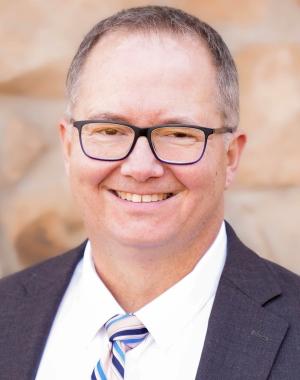
I would like to quote a relatively unknown theologian. She lives in my house, is ten years old, and her name is Grace. Two years ago, after returning from parish catechesis one morning, I was looking with her through her textbook. I closed the book and asked, “Grace, who is God?” My daughter paused thoughtfully and, with her lovely smile, responded, “God is a waterfall…and we are all his thirsty flowers.”
Taken aback, I have frequently now pondered and prayed with this metaphor. It illustrates for me the energy, the outward movement, of God’s perpetual and total gift of himself in love—and at the same time the beauty and dignity of every human being, with our deep poverty to receive what only God can give.
Ven. Marie-Eugene of the Child Jesus, OCD, writes, “God is an ocean, a fire, a living fountain. Each time we make contact with God we touch the ocean that he is, the flame that he is, and consequently we draw from him the divine substance.”[i] God has made us so that we might find him, freely enter into contact and receive his divine life as pure gift. Each of us must come to the place where communion with God is desired above all else. It will be this communion with God that will bring deepest joy in the “eternal exchange of love”[ii] that is heaven.
How can we catechists teach to this desire, so that our learners are not indifferent to God but gradually desire to know him more and more? Here are three possibilities.
First, we can plan occasions of quality prayer that are real opportunities to encounter God. Nothing stimulates desire for God more than being in actual contact with him. Beginning in a place of prayer where our learners are comfortable, then gradually over the year helping them stretch in their capacities, can not only inspire them to begin praying on their own but also have a dramatically positive impact on the catechetical session itself. With such a start to our catechesis, catechetical miracles become possible!
Second, we can teach in such a way that allows and encourages a responsiveness on the part of our learners. Sofia Cavalletti once observed how vital it is that children being catechized not be overwhelmed by too much at once. She wrote:
We should not give too many things; we should not offer too many stimuli. We should not alter too often or too rapidly the object of the child’s attention, in which case the child would defend himself with an intentional indifference to this kind of wearying, continuous movie. If the child does not have the time to dwell with anything, then everything will come to seem the same to him and he will lose all interest in things.[iii]
Too much content without a sufficient amount of time to “dwell” with it and take it to heart results too often in disinterest. Catechetical participants need the time, the space, and the freedom to respond to what they have received. Growing into discipleship requires the freedom to respond as one will; only with this opportunity can gratitude, conviction, and desire begin to grow.
Additionally, the spark of curiosity always benefits from more kindling. Sherry Weddell suggests that, when a person expresses curiosity, sometimes it can be helpful to respond to a question with a question. How frequently we see the Lord doing this in the Gospels! [iv] We might say, “That’s a great question! It makes me also wonder…” Responding like this reveals an appreciation for the mystery of the person and a solidarity with her questions and has every possibility of stimulating deeper questions and a greater desire for Truth. In this way, the catechist too might come to see God and his mysteries with new eyes.
Third, so much depends upon the indispensable catechist. Are we catechists, as children of our heavenly Father, in a position where our own desire for God is clearly perceptible so as to be contagious? Catechists who are deeply and visibly in love with God can provoke all kinds of questions in the hearts of those we teach. Weddell offers this challenge: “We are to live lives of such inexplicable joy, love, faith and peace (even in trial) that all the normal categories by which nonbelievers try to classify us won’t work.”[v]
Above all things, catechesis today must stir up a longing for God. It is from within the atmosphere of this thirst that understanding begins to be pursued for the sake of love.
Dr. James Pauley is Associate Professor of Theology and Catechetics at Franciscan University of Steubenville.
Notes
[i] Ven. Marie-Eugene of the Child Jesus, OCD, Where the Spirit Breathes: Prayer and Action (New York: Alba House, 1998), 67.
[ii] Catechism of the Catholic Church, par. 221.
[iii] Sofia Cavalletti, The Religious Potential of the Child (Chicago: Liturgical Training Publications, 1992), 140.
[iv] Sherry Weddell, Forming Intentional Disciples: The Path to Knowing and Following Jesus (Huntington, IN: Our Sunday Visitor, Inc., 2012), 146-147.
[v] Ibid., 151.
This article originally appeared on page 5 of the printed edition. Photo of "Pink Glencar Falls" by Nicholas Raymond at Flickr.com.
This article is from The Catechetical Review (Online Edition ISSN 2379-6324) and may be copied for catechetical purposes only. It may not be reprinted in another published work without the permission of The Catechetical Review by contacting [email protected]


















